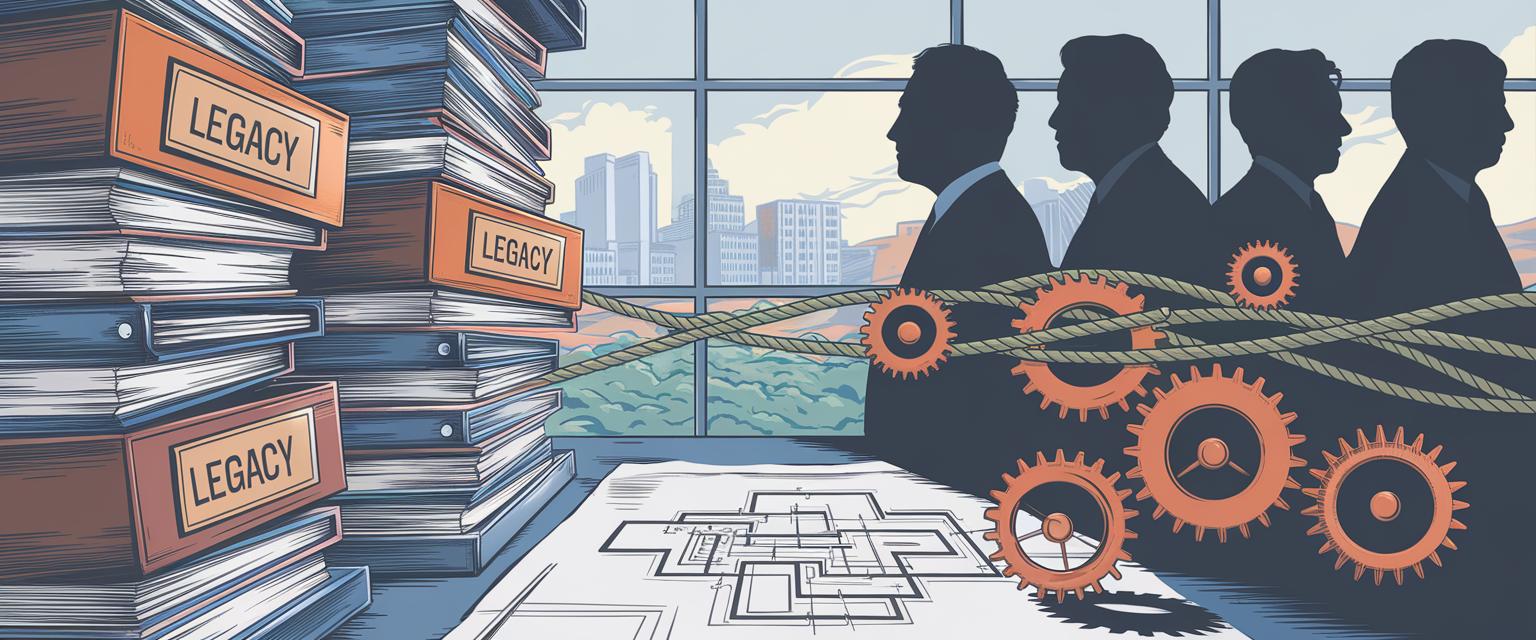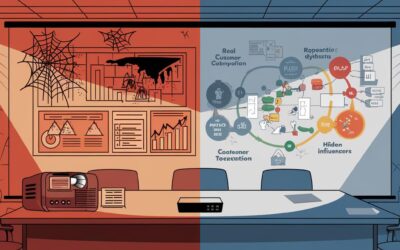Emotional Intelligence: Critical Insight for Family Leaders
Introduction
Family businesses form the backbone of Indian commerce, yet many flounder not for lack of capital or market opportunity, but because of emotional deficits at the leadership level. In my four decades working with family enterprises, I’ve witnessed countless succession plans derail, governance structures collapse, and potentially great businesses plateau—all traceable to a fundamental gap in emotional intelligence.
The pattern is predictable: The founder who built the enterprise with raw intuition and market savvy expects successors to lead exactly as they did. The next generation, educated at premier institutions and exposed to modern management thinking, returns with frameworks that clash with established ways. Between them sits a chasm of unspoken expectations, wounded pride, and mutual distrust.
This collision isn’t just a “soft” family dynamic issue—it manifests in hard business outcomes: delayed strategic decisions, capital misallocation, customer neglect, and talent exodus. The cost of emotional intelligence deficits in family businesses is measurable, substantial, and completely avoidable.
- Emotional intelligence in family business is not a luxury but a strategic asset that determines succession success, conflict resolution capabilities, and ultimately business longevity
- Family enterprises face unique tensions where business objectives and family dynamics constantly intersect, requiring leaders with exceptional self-awareness and relationship management skills
- Developing EQ in next-generation leaders requires systematic effort, not osmosis—and should be approached with the same rigor as financial or operational training
Table of Contents
- The Strategic Imperative: Why Emotional Intelligence Matters in Family Businesses
- Enhancing Succession Outcomes: The EQ Advantage
- Developing Emotional Intelligence in Next-Generation Leaders
- FAQ
- Conclusion
The Strategic Imperative: Why Emotional Intelligence Matters in Family Businesses
Family businesses operate at a permanent intersection of emotion and commerce. Unlike public corporations where professional managers can maintain emotional distance, family enterprises constantly navigate relationships where a father is also a chairman, a sister is also a CFO, and a cousin manages the supply chain. This structural reality makes emotional intelligence not just beneficial but existential.
The Dual-System Problem
Every family business functions as two distinct systems forced to operate as one: the family system (built on unconditional acceptance, loyalty, and tradition) and the business system (built on performance, accountability, and adaptation). These systems frequently have contradictory values and requirements.
In my work with a third-generation manufacturing business in Gujarat, I watched a founder’s son struggle to address performance issues with his uncle—who was also the head of production. Every conversation about factory efficiency became a referendum on family loyalty. The simple business problem of declining productivity remained unsolved for years because neither had the emotional toolkit to separate the family and business dimensions of their relationship.
Leaders with high EQ can mentally separate these systems, addressing business issues without triggering family earthquakes. They recognize when a conversation activates family dynamics and can recalibrate accordingly.
The Cognitive-Emotional Gap
Technical competence and emotional intelligence exist on separate developmental tracks. Many family business leaders make the critical error of assuming that education and business acumen automatically confer emotional maturity.
I’ve worked with brilliant founders who built billion-dollar enterprises yet couldn’t tolerate the slightest disagreement from their children. Similarly, I’ve seen next-generation leaders with impressive degrees fail because they couldn’t empathize with the anxieties of a parent gradually relinquishing control of their life’s work.
Leadership EQ involves four core competencies that must be developed separately from technical skills:
| EQ Component | Family Business Application |
|---|---|
| Self-awareness | Understanding how your position in the family colors your business decisions |
| Self-regulation | Managing reactions when family members challenge your authority or decisions |
| Empathy | Recognizing the unspoken fears and aspirations driving other family members’ positions |
| Relationship management | Building consensus and resolving conflicts while preserving both business needs and family harmony |
The Trust Multiplier
In my tenure as advisor to a family-owned textile business, I observed how variations in emotional intelligence created dramatic differences in organizational efficiency. The founder’s eldest son, despite solid operational knowledge, created friction with every decision because employees and family members questioned his motives. His communication style was defensive, his feedback was delivered as criticism, and his authority came through position rather than influence.
His sister, who eventually took leadership, demonstrated remarkable emotional intelligence. She established psychological safety in meetings, sought input before decisions, and addressed concerns with genuine curiosity rather than defensiveness. The organizational result was striking: faster decision implementation, higher employee engagement, and more transparent problem-solving.
The difference wasn’t in their technical capabilities but in their emotional impact. The brother required extensive oversight and control mechanisms to accomplish objectives; the sister could achieve more through trust-based governance, freeing resources for growth rather than compliance monitoring.
Enhancing Succession Outcomes: The EQ Advantage
Family business succession represents the most emotionally charged leadership transition possible. The statistical odds are sobering: only 30% of family businesses survive into the second generation, and merely 12% make it to the third [Family Business Institute, 2022]. These failures rarely stem from market conditions or competitive pressures—they collapse from within.
The Hidden Dimensions of Succession
Most succession planning focuses on visible elements: legal structures, ownership transfer, tax implications, and technical competence assessment. These aspects matter, but they’re merely the infrastructure of succession. The determinative factors lie beneath the surface:
- Identity reorganization: The founder must reshape personal identity beyond the business
- Legacy anxiety: Concerns about how the business will evolve under new leadership
- Authority recalibration: Family members, employees and external stakeholders must realign relationships
- Legitimacy establishment: Successors must build credibility beyond their family connection
Each dimension is fundamentally emotional, not technical. High-EQ leaders acknowledge and address these undercurrents rather than pretending they don’t exist.
The Communication Imperative
In working with an FMCG family business through succession, I witnessed how communication skills either accelerated or derailed the transition. The founder and successor needed different communication capabilities:
| For Founders | For Successors |
|---|---|
| Articulating implicit knowledge and decision frameworks | Active listening without defensiveness or premature judgment |
| Providing feedback without micromanaging | Seeking guidance without surrendering autonomy |
| Acknowledging concerns about relinquishing control | Demonstrating respect for legacy while introducing necessary change |
| Celebrating successor achievements without comparison | Managing frustration during the necessarily gradual transition of authority |
Emotional intelligence enables these difficult conversations. Without it, both generations retreat to their corners: founders hold onto control too long, and successors either become passive or rebellious. Either pattern destroys value.
Conflict Resolution: The Ultimate Succession Test
Every succession generates conflict—this isn’t a dysfunction but an inevitability. The question isn’t whether conflicts will emerge but how they’ll be handled when they do. Conflict resolution in family business requires specific emotional capacities:
- Naming tensions without accusation
- Separating business problems from family dynamics
- Identifying shared objectives beyond competing positions
- Finding resolution mechanisms that preserve relationships
A manufacturing family I advised reached succession impasse when the second-generation leader wanted to expand internationally while the founder insisted on focusing domestically. The surface conflict appeared strategic, but the underlying tension was about risk tolerance and control. The breakthrough came not through business analysis but through emotional intelligence work: creating space for the founder to express anxiety about venturing beyond familiar territory, and for the successor to acknowledge the wisdom in the founder’s caution.
The resulting expansion plan incorporated elements from both perspectives and included milestones that addressed the founder’s need for prudence while accommodating the successor’s growth ambitions. This wasn’t compromise but integration—possible only because both parties developed the emotional capacity to hear concerns beneath positions.
Developing Emotional Intelligence in Next-Generation Leaders
Most family businesses expect emotional intelligence to develop naturally. They invest extensively in technical education for next-generation leaders—sending them to premier business schools, arranging internships, and providing operational training—while leaving interpersonal capabilities to chance. This asymmetry explains why many technically competent successors still fail.
The Systematic Development Approach
Emotional intelligence can and should be cultivated as systematically as any other business capability. Based on my work with succession dynamics across multiple family enterprises, I’ve found three development pathways particularly effective:
1. Structured Self-Awareness Building
Self-awareness forms the foundation of emotional intelligence. Next-generation leaders need regular, structured opportunities to examine their emotional patterns and triggers, particularly in family-business contexts.
Effective methods include:
- 360-degree feedback specifically designed for family business contexts
- Regular reflection sessions with non-family mentors who can provide objective observation
- Psychometric assessments that identify emotional tendencies and blind spots
- Maintaining decision journals that track emotional states during key business choices
A textile business heir I mentored made breakthrough progress by implementing a simple practice: after each significant meeting with the founding generation, he would document three observations—his emotional state entering the discussion, moments when emotions intensified, and what family history or patterns might have triggered those responses. This practice alone dramatically improved his ability to separate family dynamics from business discussions.
2. Controlled Exposure and Feedback Loops
Emotional capabilities develop through progressive challenges followed by reflective feedback. Family businesses often err in two directions: either shielding next-generation leaders from difficult situations or throwing them into overwhelming circumstances without support.
A calibrated approach includes:
- Assigning specific relationship-intensive projects with increasing complexity
- Creating regular debriefing sessions focused on emotional navigation, not just outcomes
- Pairing next-generation leaders with seasoned executives for complex stakeholder interactions
- Establishing protocols for feedback that address emotional intelligence dimensions
A pharmaceutical family business I advised created a structured rotation program where the successor spent time in customer-facing roles, supplier negotiations, and employee relations before any operational leadership. Each rotation included specific emotional intelligence objectives and mentorship from leaders skilled in those dimensions.
3. External Perspective Development
Family business environments can create emotional insularity. Next-generation leaders benefit immensely from experiences that broaden their emotional range and perspective.
Valuable approaches include:
- Service on external boards or industry associations
- Participation in peer groups of other family business successors
- Structured coaching relationships with professionals outside the industry
- Involvement in community leadership where family position isn’t primary
A real estate developer’s daughter made remarkable emotional intelligence gains after joining a peer forum of next-generation leaders from non-competing family businesses. The environment allowed her to process succession challenges, practice difficult conversations, and develop emotional agility without family complexity. She returned to the business with greatly enhanced relationship skills.
The Integration Challenge: Bridging Generations
Developing emotional intelligence isn’t solely the next generation’s responsibility. The founding generation must simultaneously develop their own emotional capabilities to create an environment where EQ can flourish.
Key capabilities for founders and current leaders include:
- Tolerating the discomfort of watching successors make different (not wrong) decisions
- Managing anxiety about legacy and control without projecting it onto successors
- Creating psychological safety for difficult feedback conversations
- Distinguishing between business disagreements and personal rejection
A manufacturing family I worked with established quarterly “integration dialogues” where both generations discussed not just business issues but the emotional experience of the transition. These structured conversations, often facilitated by a neutral third party, created space to address tensions before they became conflicts.
FAQ
How do we balance emotional intelligence with necessary business decisions that may create family tension?
Emotional intelligence doesn’t mean avoiding difficult decisions to maintain harmony. It means making those decisions with awareness of their emotional impact and managing the process accordingly. In practice, this means:
- Separating the decision content from the decision process
- Creating appropriate forums for both business discussion and emotional processing
- Establishing clear decision rights and protocols before contentious issues arise
- Using third-party facilitation for decisions with significant family implications
When a family business must make decisions that create tension—such as selecting one sibling over another for leadership, or closing a legacy division—high EQ leaders focus on process transparency and emotional acknowledgment, not outcome avoidance.
Can emotional intelligence be developed in midlife, or are these patterns too established?
Research consistently demonstrates that emotional intelligence remains developable throughout adulthood. Unlike cognitive capabilities that peak early, emotional skills can continue developing with deliberate practice. The key factors in mid-life development are:
- Genuine motivation to change (usually triggered by meaningful feedback or consequences)
- Structured opportunities to practice new behaviors
- Regular feedback on progress
- Environment that supports and reinforces development
I’ve worked with founders in their 60s who significantly enhanced their emotional intelligence once they recognized its importance to succession success. The development timeline may be longer than for younger leaders, but meaningful change remains entirely possible.
How do we address emotional intelligence disparities among siblings who are all potential successors?
This question touches the third rail of family business succession: what happens when technical capabilities and emotional intelligence aren’t aligned in the same successor? Three approaches prove most effective:
- Separating roles based on capability profiles (e.g., emotionally intelligent siblings in relationship-intensive positions)
- Creating development plans that address specific gaps for each successor
- Implementing governance structures that distribute decision rights according to capabilities
- Using advisory boards to complement areas where family leadership has gaps
The least effective approach is ignoring these disparities and hoping they resolve themselves. Emotional intelligence gaps, left unaddressed, tend to widen rather than narrow under leadership pressure.
Conclusion
Family businesses stand at a unique intersection of commerce and emotion. Their competitive advantage comes precisely from the relationships that can also become their greatest vulnerability. Emotional intelligence—properly understood and systematically developed—transforms this paradox from a threat into a strategic asset.
The family businesses that thrive across generations aren’t necessarily those with the most innovative products or efficient operations. They’re the ones that build emotional infrastructure as deliberately as they build operational capabilities. They create environments where difficult conversations happen productively, where conflict becomes creative rather than destructive, and where succession becomes an opportunity rather than a crisis.
When family business leaders commit to developing emotional intelligence with the same seriousness they bring to financial management or market strategy, they don’t just preserve family harmony—they create sustainable competitive advantage. In a business landscape increasingly dominated by short-term thinking and transactional relationships, the family enterprise with high emotional intelligence possesses something increasingly rare and valuable: the capacity to make decisions that serve both the present quarter and the next quarter-century.
The choice is clear: either develop emotional capabilities deliberately or watch them become accidental limitations. Family businesses that choose the former path convert their inherent complexity from a burden into a blessing.
Schedule a transformation consultation to assess your family business’s emotional intelligence landscape and develop systematic capability-building approaches.






